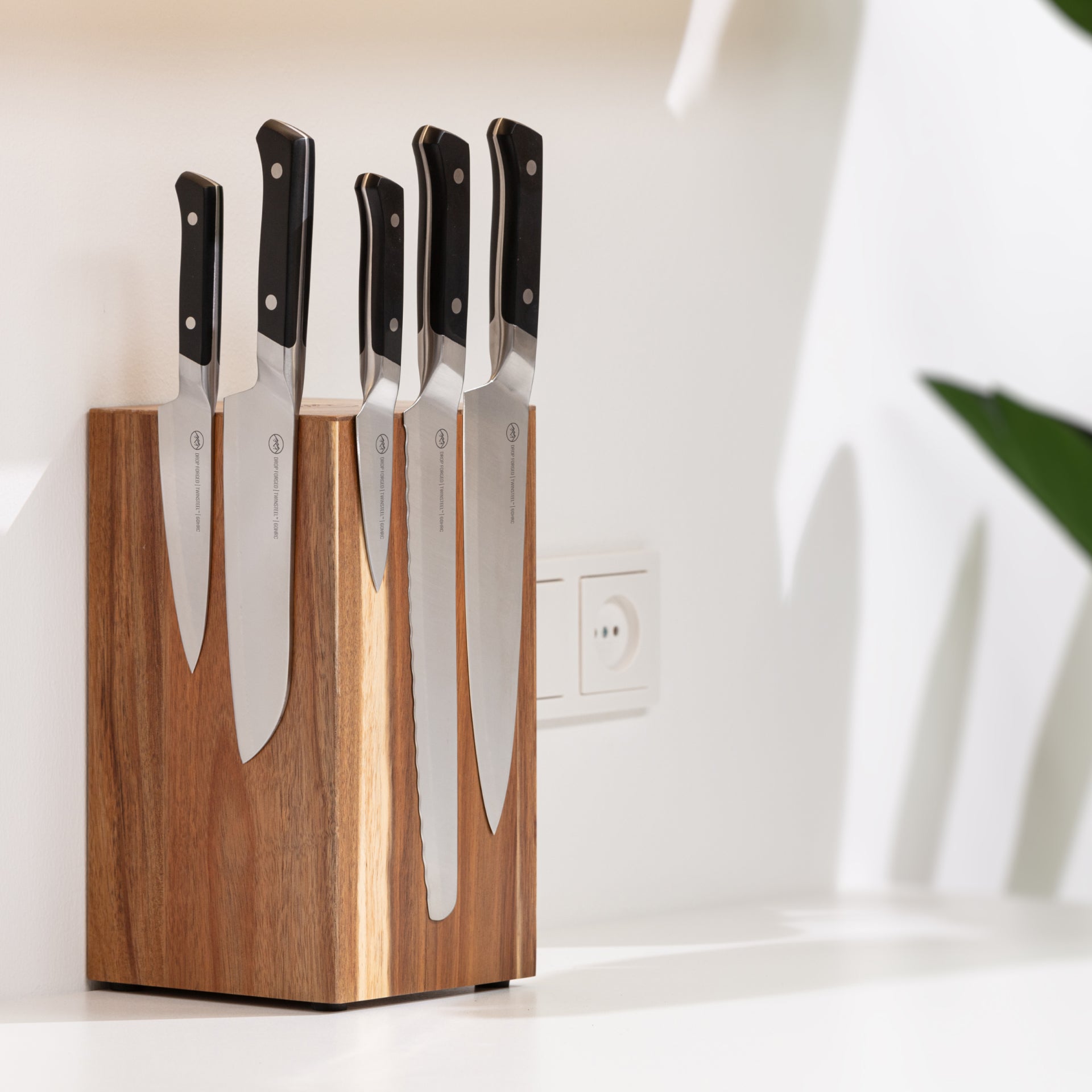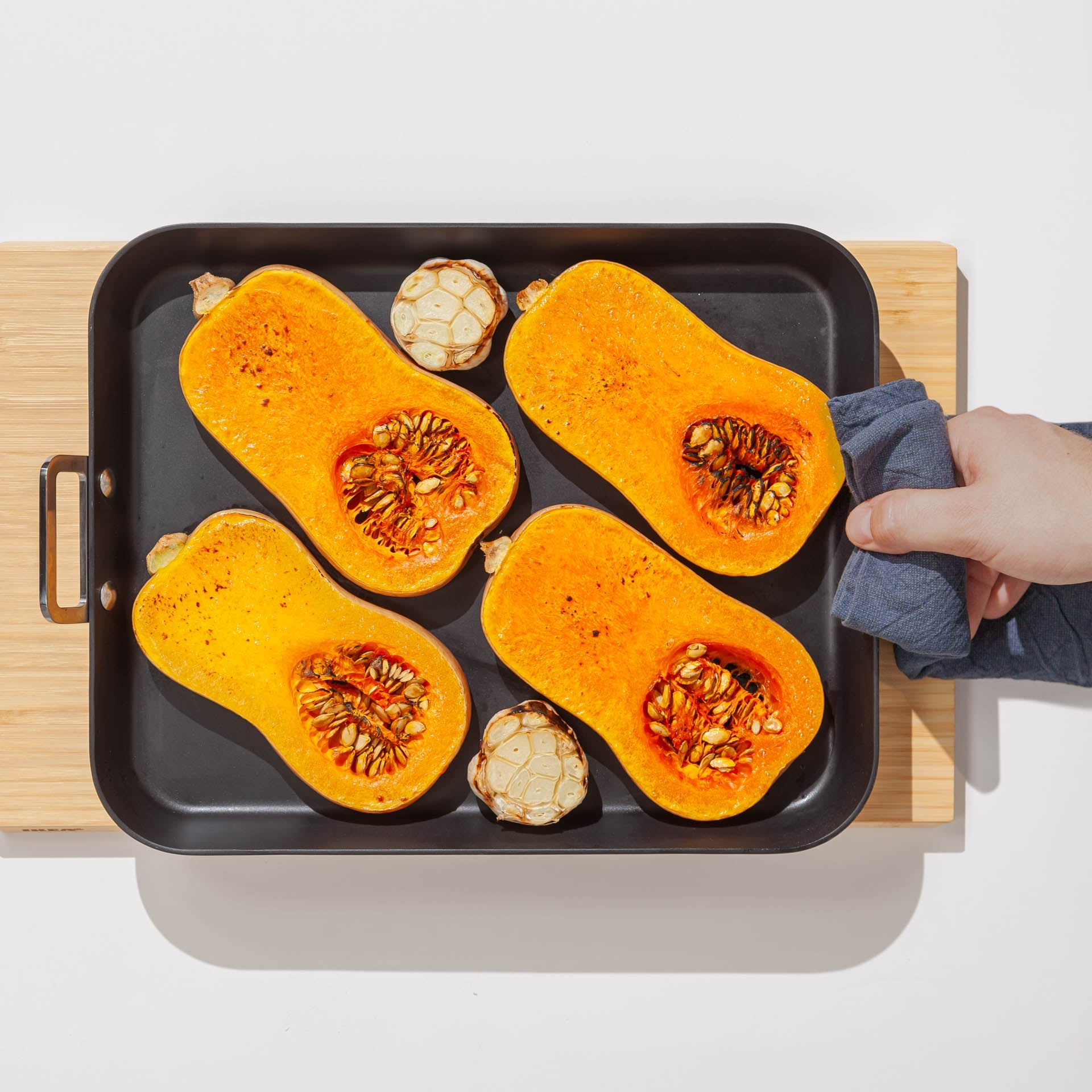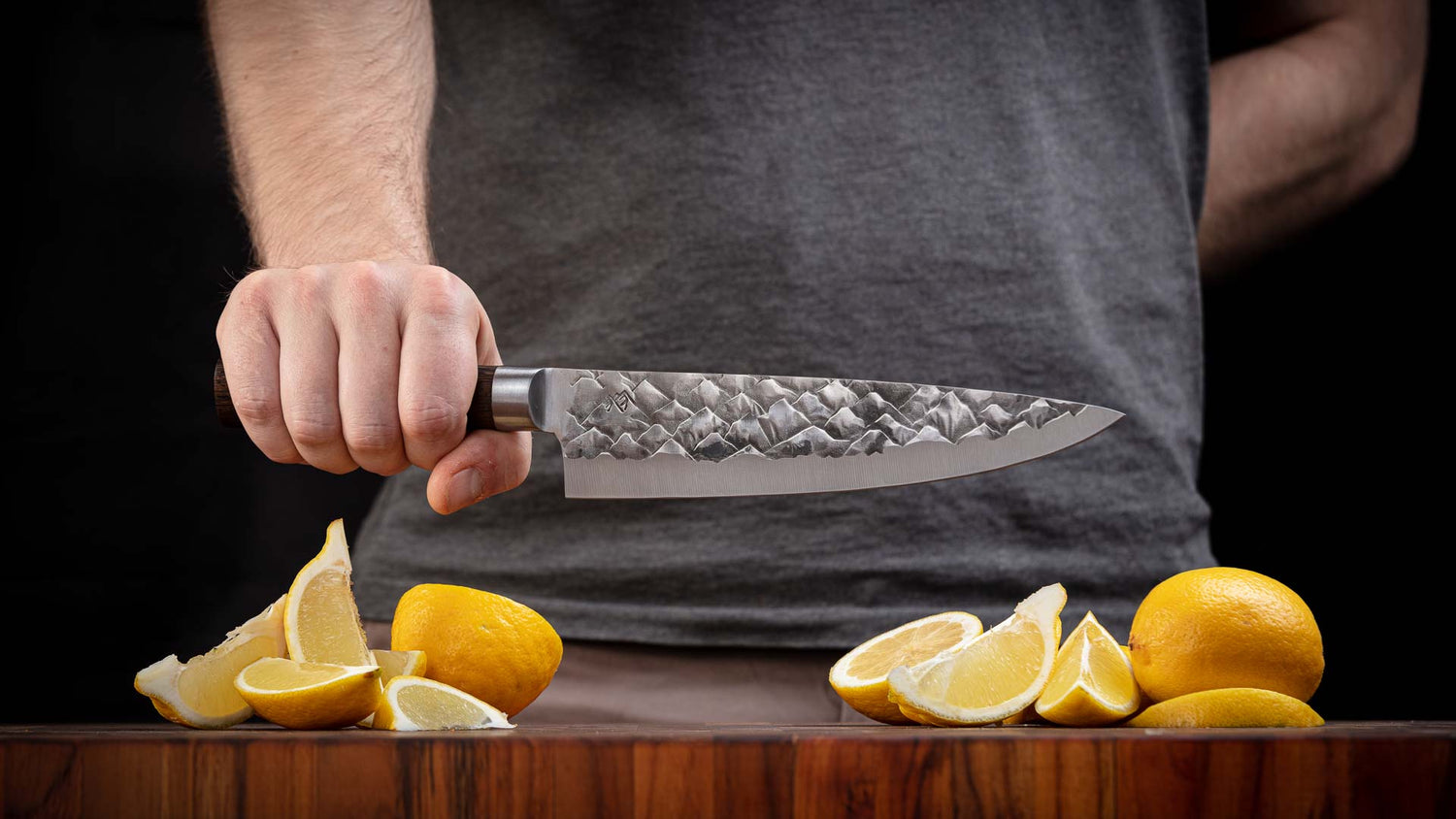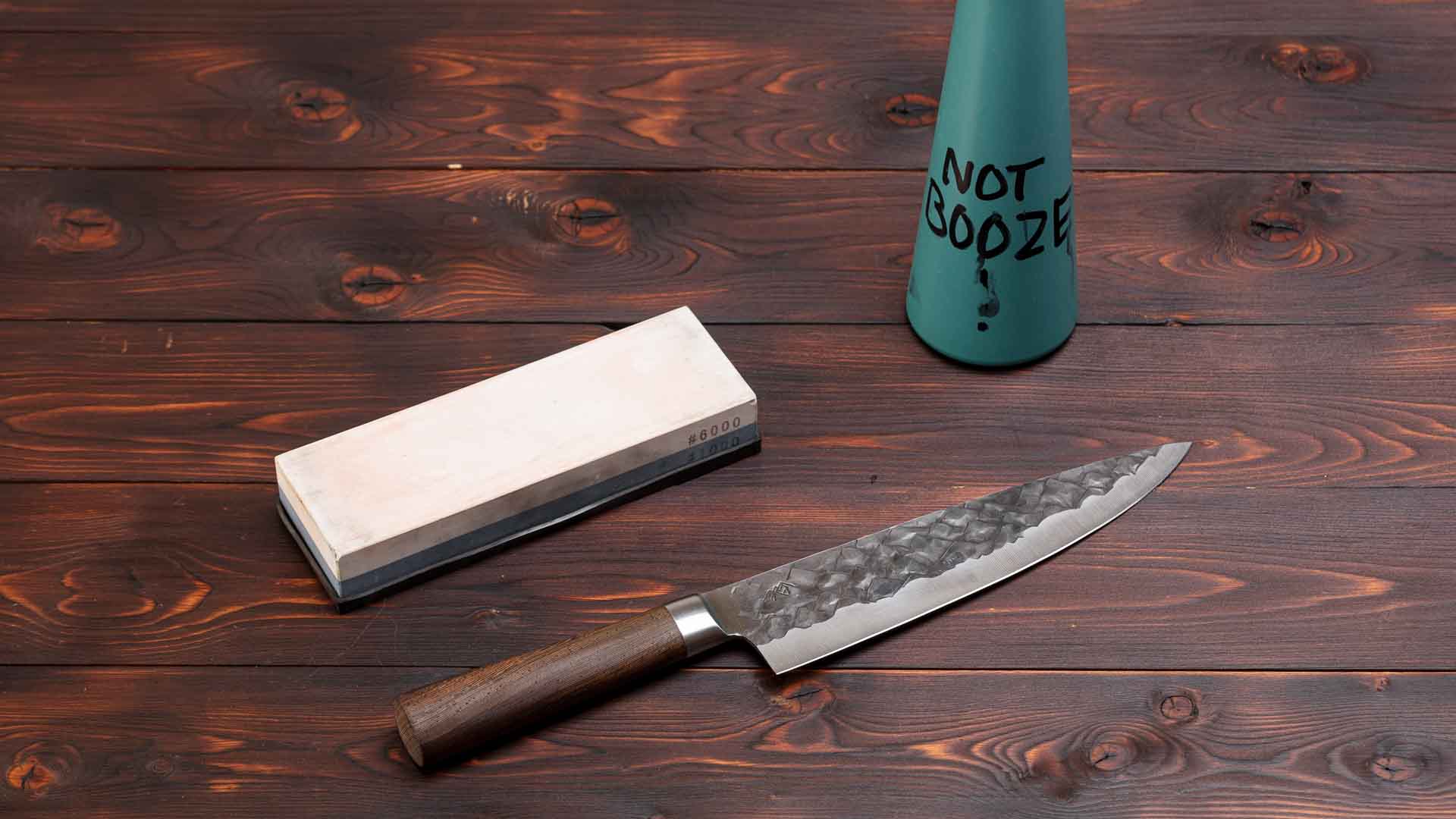A good quality kitchen knife will last a lifetime. If taken care of properly. Knife maintenance is easy and costs little to no time at all. It’s a matter of habit really. Adopt the right cooking habits and you are rewarded with a tool that stays sharper for longer and will probably outlast you. We have 4 simple tips for basic knife maintenance.
CUTTING
To keep your knife as sharp as possible during cutting you should avoid cutting into anything that will dull the knife more rapidly. Because the steel of your knife is hardened it is also more brittle. This means that a knife can chip when abused. Here’s some pointers how to properly use your knife:
- Use the right knife for the right task. Don’t use a Chef’s Knife to hack through bones for example. Use a cleaver for that. Generally speaking, using a knife should not require much force. If it does, than you are probably using the knife for something it wasn’t meant for
- Use the right cutting board. Avoid cutting on anything hard like stoneware, steel, glass, or marble. This will dull the knife or even cause it to chip. Kitchen knives should be used on a soft cutting board. We prefer wooden cutting boards. They look nicer and are better for the planet. But plastic boards work almost as well.
- Do not put lateral pressure on the blade edge. This means: do not push or scrape the blade side to side. This will cause the sharp edge to roll over or chip. Need to scrape something of a board? Use the back of the knife!

CLEANING
The best way to cut down on knife maintenance is cleaning you knives the right way.
- Even though some knives are dishwasher safe, we always recommend you to hand wash your knives directly after use. BARE Knives are NOT dishwasher safe due to the wooden handle.
- Do not let your knife sit for too long with food residue on it. Especially acid foods may cause the blade to stain. Though this can be scrubbed off, it’s better to be avoided altogether.
- To wash your knife simply use some dishwashing detergent and a non-abrasive sponge or brush. Dry the knife carefully. Keep the sharp blade away from you during washing and preferably lay the knife flat on the bottom of the sink. This way you minimize the risk of cutting yourself accidentally during cleaning.

STORING
Perhaps just as important in your knife maintenance routine is how you store your knives
- Store your knives in a dry place so they don’t stain or rust. Even stainless steel knives can rust over time.
- Keep your knives from banging into other knives or utensils. This would dull the blade. Therefore, do not throw them carelessly into the kitchen drawer. Use a knife block or a magnet strip. (We happen to sell such a magnet strip)
- Most importantly: store your kitchen knives out of reach from children.

PERIODICAL CARE
Every once and again you will need to touch up your kitchen knives. Here are a couple things you can to to keep your knives in tip-top shape.
- Sharpening the blade. Eventually every sharp blade will dull with use. You can sharpen the blade yourself or have it sharpened by a professional. You can find more information about the first option here. If you want your blades sharpened by a pro we recommend asking at your local kitchen specialty shop.
- If your blade has a wooden handle: apply oil to the handle. To keep a wooden handle in water resistant it needs to be oiled. We recommend once every two or three months for the first year of use, and once every 6 months every year thereafter.
- After lots of use a little discoloration or rust can form on your knife. Don't worry, this is easily dealt with. Here you can find how.







Leave a comment
All comments are moderated before being published.
This site is protected by hCaptcha and the hCaptcha Privacy Policy and Terms of Service apply.